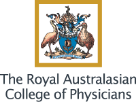What is Cerebral Palsy?
Cerebral palsy is a group of permanent movement disorders that appear in early childhood and affect a person's ability to coordinate and control their movements. It is caused by abnormal brain development or damage to the developing brain, usually occurring before or during birth, or in the early years of life.
Types of Cerebral Palsy:
There are different types of cerebral palsy, depending on the parts of the body affected and the types of movement difficulties:
- Spastic Cerebral Palsy: Characterized by increased muscle tone, leading to stiff and tight muscles.
- Dyskinetic Cerebral Palsy: Involves involuntary and uncontrolled movements.
- Ataxic Cerebral Palsy: Results in problems with balance and coordination.
- Mixed Cerebral Palsy: A combination of the above types.
Treatment Options:
While there is no cure for cerebral palsy, various treatments can help manage symptoms and improve quality of life. Treatment options may include:
- Physiotherapy: Targeted exercises and techniques to improve muscle strength, flexibility, and mobility.
- Occupational Therapy: Strategies to enhance fine motor skills, daily living activities, and adaptive techniques.
- Speech Therapy: Techniques to address communication difficulties and swallowing challenges.
- Medications: Medications may be prescribed to manage muscle spasticity, seizures, or other associated conditions.
Rehabilitation Management:
Rehabilitation is a vital aspect of managing cerebral palsy, focusing on optimizing function and promoting independence. The main goals of rehabilitation in cerebral palsy management include:
- Functional Improvement: Physical and occupational therapy aims to improve mobility, strength, and daily living skills.
- Adaptive Techniques: Occupational therapy helps develop strategies and use assistive devices to support daily activities.
- Speech and Communication Support: Speech therapy focuses on improving speech and language skills.
- Family Support: Providing education and support to parents and caregivers to better understand and manage the condition.
Living with Cerebral Palsy:
Coping with cerebral palsy requires a multidisciplinary approach and ongoing support. Here are some tips to support your well-being:
- Engage in regular therapy sessions and follow your healthcare provider's recommendations.
- Use assistive devices, adaptive techniques, and modifications to support daily activities.
- Encourage physical activity and exercise appropriate for your abilities and condition.
- Seek emotional support from family, friends, or support groups.
Our team at GC Rehab is dedicated to providing you with personalised care and support throughout your cerebral palsy journey. Please feel free to reach out if you have any questions or concerns.







